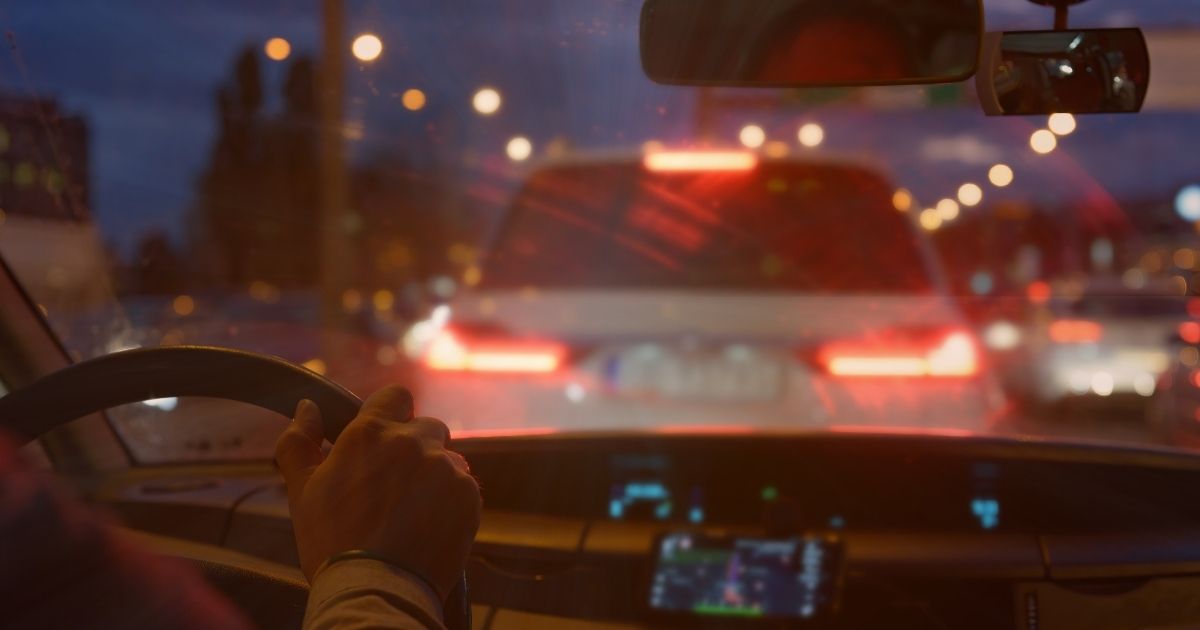Summer often means more people will be on the road, many of them driving to a vacation destination. These motorists may be looking at long hauls of eight or more hours, some of which will occur at night.
Whether in the summer or any other time of the year, driving at night requires extra caution by motorists. Not just in the way they operate their vehicles, but also in how they react to other nighttime drivers.
According to the National Highway Traffic Safety Administration (NHTSA), fatal car accidents are three times more likely to happen at night. Listed below are important safety tips for nighttime driving.
Slow Down
Motorists who routinely drive over the speed limit during the day should stop that habit at night. Whether on a city street or a highway, slowing down at night can help drivers safely react to unexpected road conditions and traffic flow around them. Do not add speed to an already dangerous situation.
Use the Headlights
High beams are great for nighttime driving, especially on two-way roads. Use them as much as needed to illuminate the road ahead. However, limit their use when there is a lot of traffic.
Always switch to regular beams when a vehicle is oncoming or is traveling directly in front. High beams can dazzle other drivers, causing accidents.
Beware of Drowsy Driving
The NHTSA says car accidents are most likely to happen between midnight and 6:00 a.m. Fatigue can come on suddenly, especially at night. Motorists should set reasonable limits for how many hours they will drive in a day and should avoid driving after dark if possible. Some people try to make good time or make up for lost time by pushing themselves into nighttime driving, but that is never a good idea. Also, before starting on a long trip, be sure to get ample sleep the night before to avoid drowsy driving.
It is easy for drivers to get into an almost trance-like state at night after driving for many hours on an endless highway. Other times, drivers may look right into the headlights of an oncoming car, temporarily blinding their vision. Keeping eyes continually moving across the landscape ahead can help drivers maintain a good focus on the road ahead and around them.
Maintain Car
A vehicle breakdown is unwelcome during daytime travel, but it is especially nerve-racking at night. Before setting out on a long trip, get the vehicle inspected. Check lights, wipers, fluid levels, tire inflation, steering, and braking. Make sure the car is in top condition for travel. Clean the windshield and headlights to help with visibility, and make sure headlights are aimed correctly and have not shifted up or down.
Avoid Two-Lane Roads
Two-lane roads make the glare from oncoming headlights distracting and potentially dangerous. These roads often have twists and turns that may be difficult to navigate when it is dark outside. Finally, streetlights may be nonexistent, making travel treacherous. Try to stick to highways or well-lit main roads whenever it is possible.
Do Not Drive While Impaired
While it is never safe or legal to drive under the influence of drugs or alcohol, doing so at night increases the risk of a severe accident. Do not get behind the wheel if impaired at all.
Prepare the Interior of the Car
Make sure needed items are in reach and that interior dashboard lights are not too bright. Glancing from a bright dashboard to a dark road can be disorienting. Ensure the rearview mirror is not causing glare, and shift it to the nighttime position if able.
Look Out for Wildlife
Many creatures travel at night, including near or on roads. Deer, especially, often dart into the street or across the highway suddenly at night. Be on the lookout for wildlife while traveling in twilight or after dark. Slow down or stop when one sees an animal, swerving can cause an accident.
Beware of Pedestrians and Bicyclists
No one should walk near roads or ride a bicycle after dark, especially if they are not wearing reflective clothing. Regardless, nighttime drivers should always be aware that there may be a person on foot or bike near them, and they should take extra precautions.
Take Regular Breaks
Nighttime can cause a person’s internal clock to think it is time for sleep. If traveling a night is an absolute necessity, take frequent breaks. Walk around outside the car, drink a caffeinated beverage, eat a high-protein snack, or rest for 20 or 30 minutes.
While driving, keep the radio volume up, and a window cracked for fresh air. Better yet, take turns driving with a passenger if possible.
Do Not Drive After Sunset With Poor Vision
Some people are restricted from nighttime driving because of vision problems, such as cataracts. Others may not be restricted but do have nighttime vision problems. Glare from headlights and other vision disturbances can make nighttime driving treacherous for those with existing issues.
Be Extra Defensive
Defensive driving is a good idea during the day, but it becomes extra important at night. Follow all driving rules, be extra careful about changing lanes, and look for objects in blind spots. Additionally, anticipate other drivers’ actions, do not tailgate, and maintain a safe speed. All of these actions become critically important during nighttime travel.
How can I Prevent a Nighttime Accident?
No matter how careful a driver is, they cannot control the behavior of other motorists. Car accidents at night are common and are often more serious than daytime accidents.
The following quick tips can help a nighttime driver be prepared:
- Be considerate. Do not use high beams when there are oncoming cars or when traveling directly behind another vehicle. It could make the other driver lose control.
- Report a suspicious driver. Impaired drivers or those who are drowsy will often swerve lanes, drive off the side of the road, speed or drive under the speed limit, or not start and stop when traffic dictates. If a drunk or drowsy driver is near, steer away from them, pull over, and call law enforcement.
- Never assume another driver will follow traffic rules. This is where defensive driving is crucial. Everything becomes magnified at night. Drivers may disregard speed limit signs, traffic lights, or have difficulty seeing the road. Anticipate these adverse actions and respond accordingly.
- Think about safety first. Aggressive driving and reckless driving should never happen, especially at night. Driving according to safety rules will keep a nighttime driver in the position to react to other drivers’ bad driving. Lock the doors and require everyone in the car to wear a seat belt. Always restrain children in seats appropriate for their age and weight.
- Have the best driver behind the wheel. Teenagers or older drivers with vision issues should not be driving at night. Let the most apt driver do the nighttime route.
- Call it a night. The best way to prevent a nighttime accident is to not get on the road after dark to begin with. There may be times it is necessary to drive at night, but if it is absolutely not needed, stay in bed and get on the road after a good night’s sleep.
Virginia Beach Car Accident Lawyers Advocate for Victims of Nighttime Collisions
Car accidents can happen day or night, but statistics show that nighttime collisions are common and more severe. A Virginia Beach car accident lawyer can help you after a nighttime collision. At East Coast Trial Lawyers, we fight to protect the rights of car accident victims, and we will be by your side. Call us at 757-352-2237 or contact us online for a free consultation. Located in Virginia Beach, Virginia, we proudly serve clients throughout Chesapeake, Eastern Shore, Hampton, Newport News, Norfolk, Portsmouth, and Suffolk, Virginia, as well as North Carolina and nationwide.


